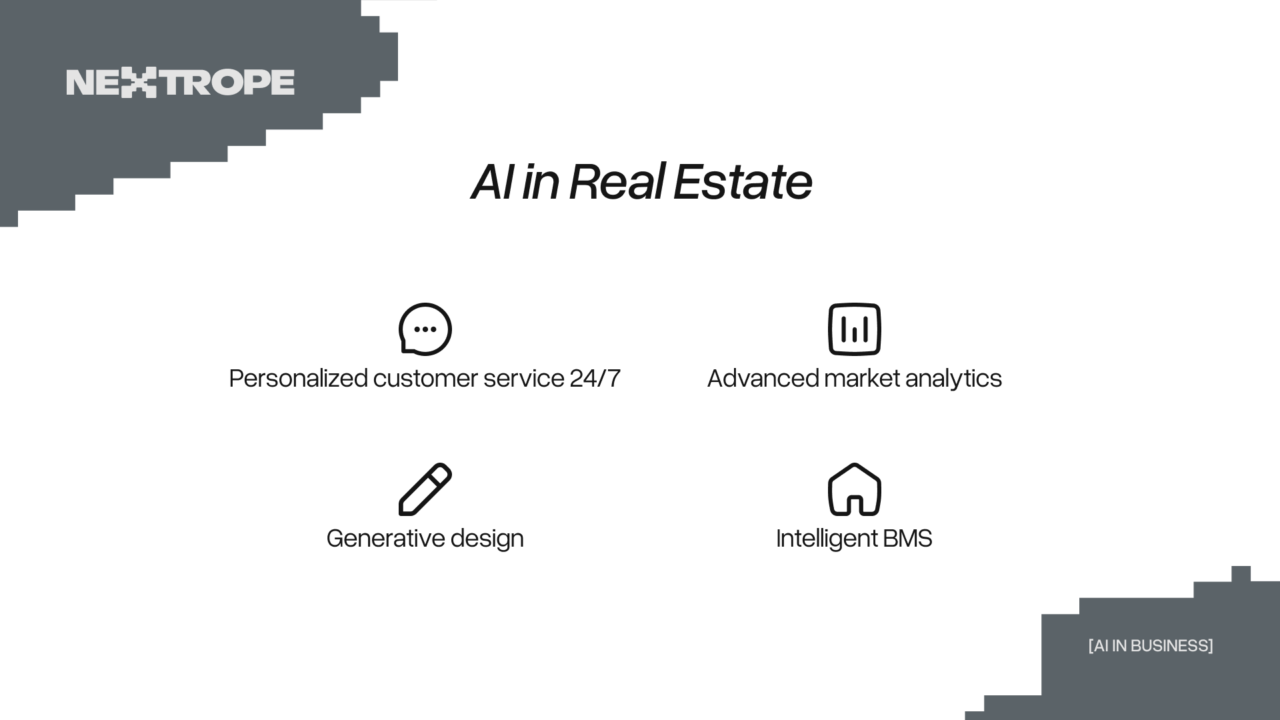AI has changed the way financial institutions collect and analyze data over the last few years. It has transformed the business environment by challenging companies and creating innovative business models.
In January this year, the Cambridge Centre for Alternative Finance together with the University of Cambridge Judge Business School and the World Economic Forum presented the results of research on the impact of AI on the financial sector. From the responses of 151 institutions from 33 countries, a clear picture of AI as a key business driver emerged. Companies are beginning to see how much potential there is in artificial intelligence - most of the FinTechs surveyed already use it to create new services and products.
Application of AI in financial technologies
One of the most important conclusions drawn from the study is the rapidly changing importance of artificial intelligence in everyday business. Approximately 64% of financial institutions expect to use AI in the next two years in process automation, risk management, customer acquisition and service, as well as the creation of new products. Today, only 16% of companies participating in the survey do so. On the other hand, as many as three quarters of respondents expect that artificial intelligence will be very important in the development of the financial services industry in the short term.
As McKinsey & Company writes in its analysis, "companies that have made the strategic decision to implement AI on a full scale and in key business areas quickly see the value of this decision". They achieve attractive return on investment, grow faster and have much higher margins than companies that do not invest in artificial intelligence.
What exactly can AI help in the world of financial technologies? It enables a faster, more accurate assessment of a potential borrower, at a lower cost, taking into account a wider range of factors; it has enormous processing power and helps manage both structured and unstructured data; it is very effective in preventing credit card fraud and relieving customer service centres by powering smart chatbots. And these are just a few examples of how artificial intelligence can streamline your daily business.
Practical applications of artificial intelligence
One of the companies that already take advantage of AI is Underwrite.ai, which processes thousands of data to assess credit risk for people and companies applying for loans. Traditionally, analyses are impractically expensive and too slow to be used effectively in financial institutions in real time. By using artificial intelligence, this process has been optimized so that advanced credit analysis can be used without unnecessary time and large investments.
Examples of revolutionary applications of artificial intelligence in financial technologies can be multiplied. One of them is Kavout, an investment platform using AI to process huge sets of unstructured data and identify patterns in real time in financial markets. Another, Ayasdi uses existing data sets to help financial institutions detect mortgage fraud and money laundering, maximize liquidity and predict customer behaviour.
Another is Kasisto, who also uses AI in his proposed solutions. For financial institutions, a KAI chatbot has been created, which helps to reduce the number of call centres by offering customers self-service solutions and additionally assists in making daily financial decisions.
- Financial institutions need technology that will help them better engage customers and reach new market segments, while building a stronger brand, said Zor Gorelov, CEO of Kasisto, quoted by PR Newswire. - Kasisto is the best AI conversation platform implemented in large banks around the world, working with millions of users in different countries in multiple languages and channels.
Another example, Feedzai, helps banks manage risk by monitoring transactions and alerting customers in case of suspicious changes in payment behaviour before processing payments. Feedzai has established cooperation with Citibank among others.
The Simundyne platform can also be an interesting example. It allows for quick and safe simulations, which allow for testing an unlimited number of scenarios in a safe environment.
- After several years of consultations about virtual reality simulation and risk modeling conducted with many global institutions, I realized that traditional modeling methods are no longer up to date - admitted Justin Lyon, CEO of Symudyne, in an interview with MarketsMedia, explaining what prompted him to create the platform. - They do not capture the complexity of real systems and cannot effectively use the enormous power of technology and large data sets.
The Cambridge Centre for Alternative Finance study showed that although technology is a key element of further progress, it does not stand in the way of mass deployment of artificial intelligence. Existing solutions for years have still not been implemented by many companies dealing with financial services on a daily basis, which is attributed to obstacles in the form of lack of trust, complicated regulations and large amount of needed data. Artificial Intelligence can help you to take your business to the next level of sophistication and fully exploit its potential.
 en
en  pl
pl 












